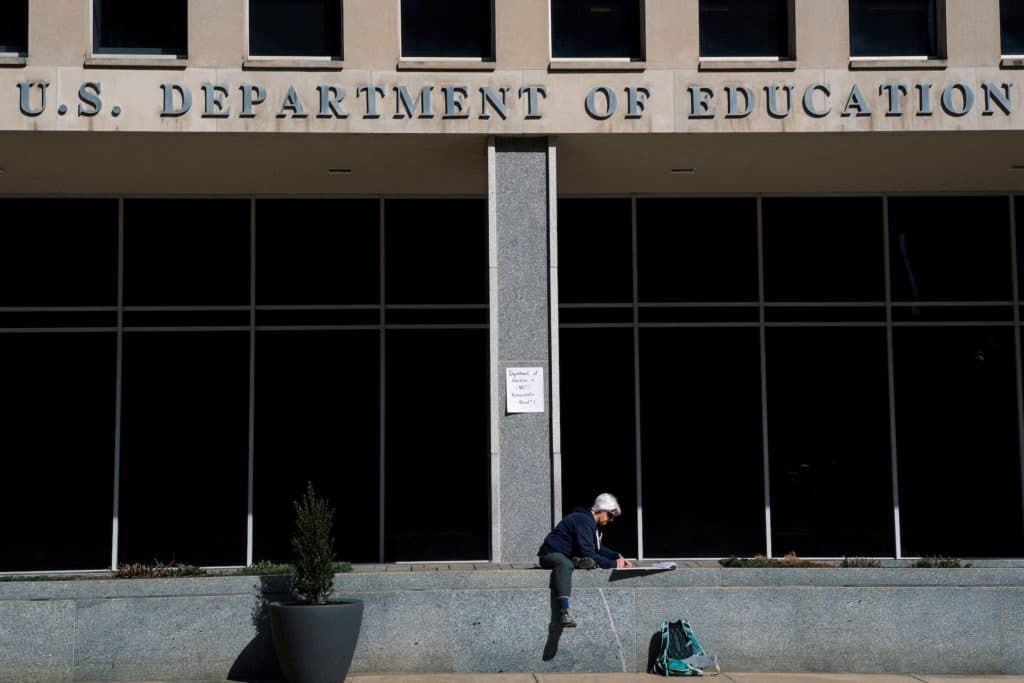We're loading the full news article for you. This includes the article content, images, author information, and related articles.
The majority of staff in the U.S. Department of Education's Office of Special Education and Rehabilitative Services (OSERS) have been laid off, raising significant concerns about the oversight and provision of services for millions of children and adults with disabilities.

On Friday, October 10, 2025, the United States Department of Education initiated a significant reduction in force, laying off 466 employees across various departments. Among the most severely affected was the Office of Special Education and Rehabilitative Services (OSERS), which oversees programs supporting millions of children and adults with disabilities nationwide. Reports indicate that nearly all non-leadership staff within OSERS, including the Office of Special Education Programs (OSEP) and the Rehabilitation Services Administration (RSA), have been terminated.
This drastic cut, described by one department employee to NPR as "decimating the office responsible for safeguarding the rights of infants, toddlers, children and youth with disabilities," has sparked widespread condemnation from education organizations and disability advocates. The layoffs are attributed to the ongoing government shutdown and a broader administrative goal of downsizing the Education Department, with plans to potentially transfer some functions to other federal agencies like the Department of Health and Human Services (HHS).
The Office of Special Education and Rehabilitative Services (OSERS) and its core division, the Office of Special Education Programs (OSEP), are crucial for monitoring state compliance with federal special education laws, managing billions in grants under the Individuals with Disabilities Education Act (IDEA), and ensuring schools meet legal requirements for Individualized Education Programs (IEPs).
The Individuals with Disabilities Education Act (IDEA) guarantees nearly 7.5 million children with disabilities access to free and appropriate education. Experts, including former Assistant Secretary for OSERS Glenna Wright-Gallo, warn that the loss of federal oversight threatens the system of checks and balances designed to protect the rights of students with disabilities.
In Kenya, the government has demonstrated a commitment to protecting and providing equal opportunities for persons with special needs and disabilities. The Constitution of Kenya 2010, particularly Articles 27, 53(b), and 54, explicitly guarantees the right to equality, freedom from discrimination, and access to free and compulsory basic education for every child, including those with disabilities.
The Persons with Disabilities Act of 2003 (revised 2012) and the more recent Persons with Disabilities Act 2025 provide comprehensive legal frameworks for the promotion, protection, and advancement of disability rights, aligning Kenya's legal framework with international human rights standards.
The Ministry of Education has developed the National Special Needs Education (SNE) Policy Framework, adopted in 2009, to guide the provision of education for learners with special needs and disabilities. This policy advocates for inclusive education, aiming to integrate learners with disabilities into regular classrooms where compatible with their interests and needs.
Despite policy frameworks, Kenya faces challenges in fully implementing inclusive education. These include inadequate funding, insufficient infrastructure, and a shortage of trained special needs education teachers.
According to the Ministry of Education's 2018 National Survey on Children with Disabilities and Special Needs in Education, approximately 11.4% of children aged between 3 and 21 years in Kenya have special needs or a disability, translating to about 2,489,252 children. The survey also highlighted that a significant number of children with disabilities remain out of school, and resources in many schools are inadequate.
The severe reduction in staff at the US Office of Special Education and Rehabilitative Services could lead to a significant decline in federal oversight and enforcement of disability rights laws. This may result in states and school districts facing reduced accountability for providing mandated services to students with disabilities.
For Kenya, while the immediate impact of US policy changes on its domestic special education landscape is indirect, the global discourse on disability rights and inclusive education remains crucial. Continued underfunding and inadequate resources in Kenya's special needs education sector pose risks to the quality of education and the full inclusion of learners with disabilities.
The US Education Department has not officially released detailed information on the layoffs, leading to uncertainty about the exact number of affected employees and the specific offices impacted. The American Federation of Government Employees Local 252, a union representing department workers, has filed a legal challenge to the layoffs, arguing they are illegal.
In Kenya, despite the existence of comprehensive policies, the full implementation of inclusive education remains a challenge, with questions surrounding the effectiveness of policy guidelines and the availability of accurate, standardized data on disability prevalence.
Stakeholders in the US will be closely watching for further details from the Education Department regarding the restructuring of special education oversight and the potential transfer of responsibilities to other agencies. The outcome of the union's legal challenge will also be critical.
In Kenya, the focus remains on the effective implementation of the Persons with Disabilities Act 2025 and the National Special Needs Education Policy Framework. Continued advocacy for increased funding, teacher training, and accessible infrastructure will be essential to ensure equitable and quality education for all learners with disabilities. The National Council for Persons with Disabilities (NCPWD) plays a key role in promoting and protecting the rights of persons with disabilities and mainstreaming these rights in national development.
Keep the conversation in one place—threads here stay linked to the story and in the forums.
Sign in to start a discussion
Start a conversation about this story and keep it linked here.
Other hot threads
E-sports and Gaming Community in Kenya
Active 9 months ago
The Role of Technology in Modern Agriculture (AgriTech)
Active 9 months ago
Popular Recreational Activities Across Counties
Active 9 months ago
Investing in Youth Sports Development Programs
Active 9 months ago